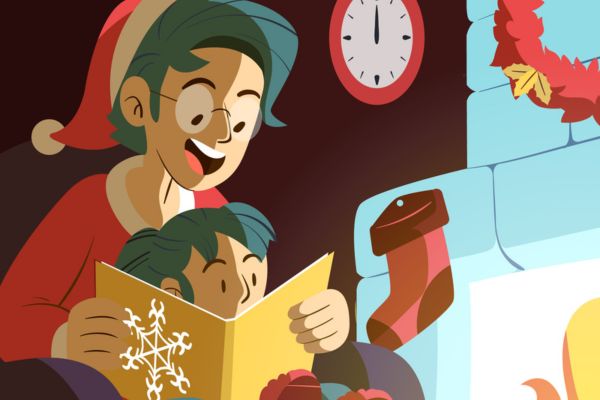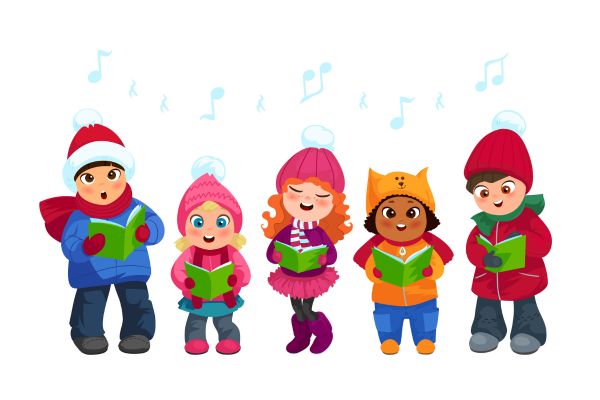5 Lesser Known A Christmas Carol Facts
Google ‘The Best Christmas Book’, and you’ll find a lot of different lists.
Some might be evenly balanced between older and more traditional Christmas offerings; others may have more of a diverse lineup, including more modern takes on Christmas.
However, there is almost no ‘The Best Christmas Book’ list that does not include A Christmas Carol by Charles Dickens.
Almost two hundred years after it was written, A Christmas Carol continues to enthral readers across the world. It is also considered a Christmas classic.
And, as may be expected from such a famous book, A Christmas Carol has its own world of amazing, astonishing and fun facts.
Here are the 5 interesting facts about A Christmas Carol that you never would have guessed!

It is a Trendsetter
On almost every other occasion, we say ‘Happy’, not ‘Merry’. Happy New Year, Happy Easter, Happy Birthday.
So, why do we use ‘Merry Christmas’ and not ‘Happy Christmas’?
Can you guess?
It was A Christmas Carol that did it…
‘Merry Christmas’ was in use pre-1843; however, ‘Happy Christmas’ was the more popular greeting, by far.
Evidence suggests that it was the 21 appearances of ‘Merry Christmas’ in A Christmas Carol that tipped the balance towards ‘Merry Christmas’; within a few decades, ‘Happy Christmas’ had been conclusively dethroned.
It inspired two other books on Christmas
Mr Dickens and his Carol by Samantha Silva and The Man Who Invented Christmas by Les Standiford are both very famous books on Christmas, and both are based on Charles Dickens’ writing A Christmas Carol.
Uncover other Christmas books and classics.

Charles Dickens gave the Idea to Charles Dickens
The inspiration to base his book on the spirit of Christmas and caring for the poor came to Mr Dickens as he spoke at a fundraising event for the Manchester Athenaeum – a very famous social club of that time.
However, the idea for the plot – a miserly individual being inspired to adopt gentler ways by Christmas – came from the story of Gabriel Grubb, a mean-spirited gravedigger who is kidnapped by goblins and convinced to become a kinder man.
Spoiler Alert: A Christmas Carol is one of the Christmas stories to be read during Christmas time. It consists of a ghost but is not exactly a traditional ghost story.
Who was Gabriel Grubb?
Gabriel Grubb was the main character of The Story of the Goblins Who Stole a Sexton, a part of a series of stories called The Pickwick Papers, written by…wait for it …Charles Dickens himself.
Have you camped outside an Apple store for an iPhone release?
Now imagine doing that in the 1870s, in winter – a snowy winter – for a reading.
Confused?
That’s exactly how popular A Christmas Carol was in those times.
Mr. Dickens used to give public readings of his works. When he did so in the United States, people would camp outside the venue in the winter snow to get tickets. The opening lines would be at least a mile long.
And all this before social media and mass marketing.
Take that, Apple!
Did he have any particular habits during his readings?
Yes, he did. He used to maintain a very specific diet while he was giving readings.
- Breakfast – Two tablespoons of rum mixed with cream
- Tea – A pint of champagne
- Dinner – A bowl of soup
- Before a reading – Sherry with raw egg beaten into it
- Reading interval – Beef tea
What kind of advantage this gave him or how it helped him, I have no idea.

It was pirated soon after its release
Two months after being released, A Christmas Carol was pirated by Parley’s Illuminated Library.
Mr. Dickens sued them for publishing his work without permission and won.
However, the publishers declared bankruptcy, robbing Mr Dickens of any financial recourse while he had to pay court costs of £700.
It was this episode that inspired the famous satirical motto of the Chancery (court) – ‘Suffer any wrong that can come you, rather than come here!’ – in another of Mr Dickens’ works.
Is he our traditional Santa Claus?
It absolutely mesmerized readers upon publication
If today’s version of people being mesmerized by a work of art – rave reviews, overheating social media with commentary – amazes you, consider this
- The Scottish historian Thomas Carlyle, a contemporary of Mr Dickens, is said to have gone out and bought a turkey after having finished A Christmas Carol.
- Contemporary novelist William Makepeace Thackeray – no great fan of Mr. Dickens’ work – called it ‘a national asset’.
- It is said that some employers gave an extra day off upon reading the book.
Take that for mesmerized!
Head here for A Christmas Carol Melbourne ticketing information.

What does this have to do with a VR Escape Room?
A fan of VR Escape Rooms must always keep an eye out for unusual and relatively uncommon facts. You never know what can come in handy when.
Now, will these particular facts prove useful at Melbourne’s premier VR Escape Room?
Whatever made you think I would reveal that in a blog post?
What are your Christmas Eve plans? Tell us in the comments below.
For couples looking for fun ideas, discover 10 romantic Christmas date ideas in Melbourne.

